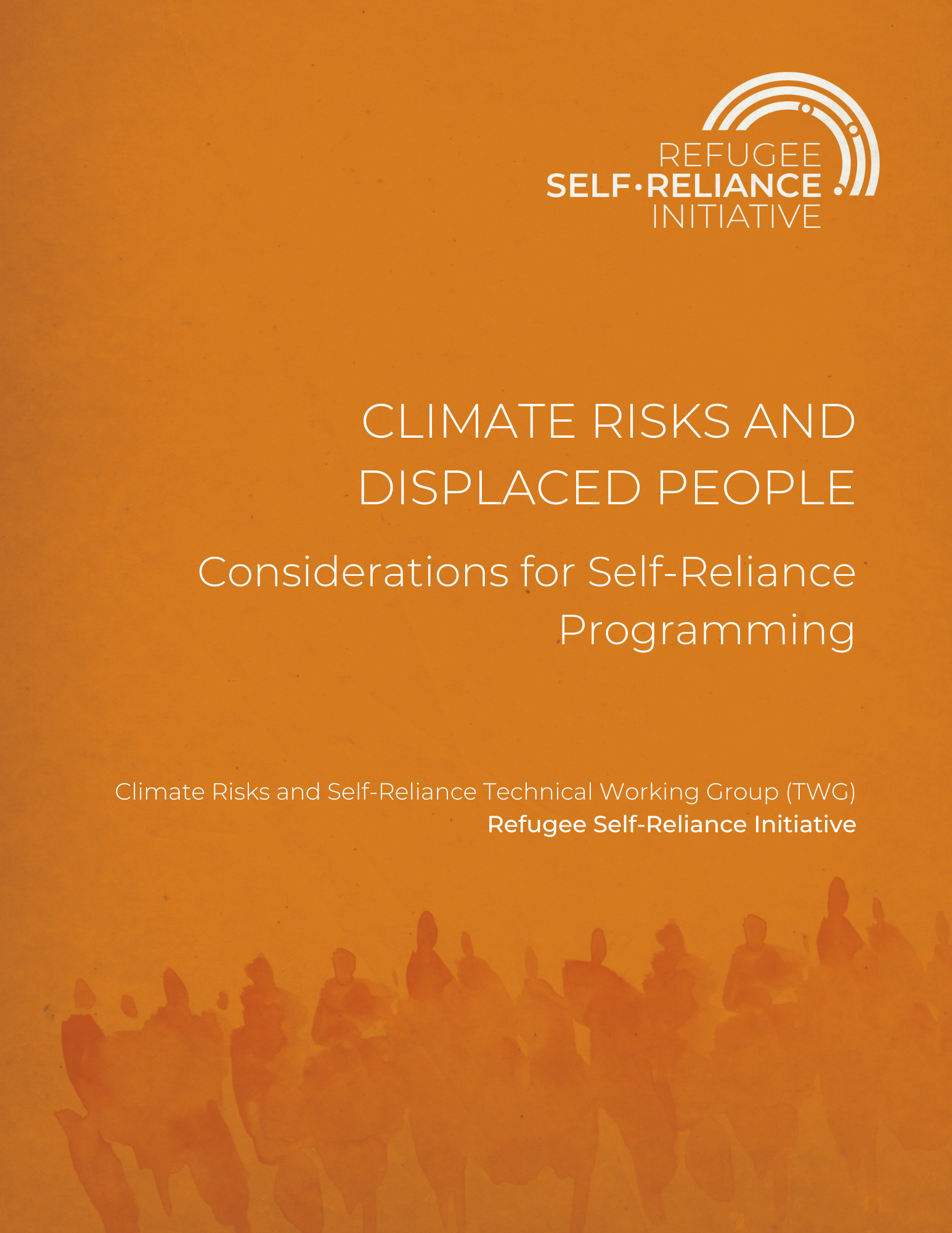On November 15, 2024, the COP29 Presidency launched the Baku Call on Climate Action for Peace, Relief, and Recovery (BCCAP), a milestone initiative aimed at increasing awareness of the intersection between climate change, conflict, and humanitarian needs. The call acknowledges livelihood disruptions as a critical result of this nexus, a response to the growing recognition that climate change’s adverse effects can act as catalysts for conflict and instability, especially in vulnerable regions.
To achieve sustainable lives, livelihoods, and durable solutions for displaced people, self-reliance programming must also consider the adverse effects of climate change and its overlapping risks. Sudden- and slow-onset climate hazards, coupled with an enduring lack of rights, restrict the ability of refugees and other displaced people to live in dignity and become self-reliant. Self-reliance programming, underpinned by broader policies addressing the intersections of climate change, displacement, and self-reliance, must take these challenges into account in both design and implementation.
This brief presents 10 key considerations relating to climate risks and self-reliance programming for displaced people. It targets policymakers, practitioners, and donors working in this space and seeks to advance the conversation on good practices, gaps, and changes needed in self-reliance programming to better address the current and future risks that climate change poses for displaced people.
This brief is a joint output of the Climate Risks and Self-Reliance Technical Working Group (TWG) hosted by the Refugee Self-Reliance Initiative (RSRI) and facilitated by Dr. Evan Easton-Calabria. It is a living document that may be updated over time. It reflects the views of participating individuals and not necessarily those of the organisations and agencies to which they belong.


